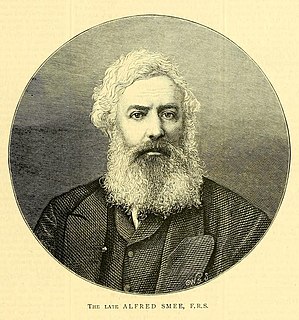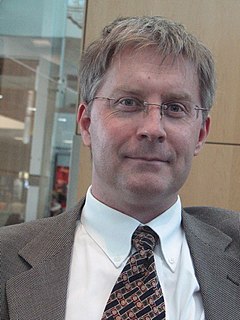Цитата Альфреда Сми
Электричество является еще новым средством для искусства и производства, и, несомненно, будущие поколения будут с интересом относиться к этому столетию, в котором оно впервые было применено к нуждам человечества.
Связанные цитаты
Прокруст в современной одежде, ученый-ядерщик подготовит постель, на которой должно лечь человечество; и если человечество не подходит — что ж, это будет очень плохо для человечества. Потребуется некоторое растяжение и небольшая ампутация — такие же растяжения и ампутации, которые происходили с тех пор, как прикладная наука действительно начала процветать, только на этот раз они будут гораздо более радикальными, чем в прежние времена. прошлое. Руководить этими далеко не безболезненными операциями будут высокоцентрализованные тоталитарные правительства.
Во-первых, большинство государей занимаются военными искусствами, в которых у меня нет ни способностей, ни интереса, а не хорошими мирными искусствами. Как правило, они больше настроены на приобретение новых королевств всеми правдами и неправдами, чем на хорошее управление теми, которые у них уже есть.
Двадцать первый век будет временем пробуждения, встречи с Творцом внутри. Многие существа испытают единство с Богом и со всей жизнью. Это будет началом золотого века нового человека, о котором написано; время вселенского человека, красноречиво описанное теми из вас, кто имеет глубокую проницательность.
Но прежде всего этот Конгресс запомнился тем, что открыл путь новой американской революции — мирной революции, в которой власть была возвращена народу, в которой правительство на всех уровнях было обновлено и обновлено и стало действительно отзывчивым. Это может быть революция столь же глубокая, далеко идущая, столь же захватывающая, как та первая революция почти 200 лет назад, и это может означать, что всего через 5 лет Америка войдет в свое третье столетие как молодая нация, новая духом, со всей энергией. и свежесть, с которой он начал свое первое столетие.
Этот пример иллюстрирует различия в эффектах, которые могут быть получены в результате исследований в области чистой или прикладной науки. Исследования в направлении прикладной науки, несомненно, привели бы к улучшению и развитию старых методов — исследования в области чистой науки дали нам совершенно новый и гораздо более мощный метод. На самом деле, исследования в области прикладной науки ведут к реформам, исследования в области чистой науки ведут к революциям, а революции, будь то политические или промышленные, чрезвычайно выгодны, если вы на стороне победителя.
Поколения подобны дням трудолюбивого человечества; смерть и рождение — это вечерня и заутреня, которые призывают человечество ко сну и встают освеженными для нового продвижения. То, что сделал отец, может делать и радоваться сын; но также имеет свою собственную работу, назначенную ему. Таким образом все вещи прибывают и катятся вперед: искусства, учреждения, мнения, ничто никогда не завершается, но всегда завершается.
Правительства, заботящиеся об общих интересах, строятся в соответствии со строгими принципами справедливости и, следовательно, являются истинными формами; но все те, которые заботятся только об интересах правителей, являются ущербными и извращенными формами, ибо они деспотичны, тогда как государство есть сообщество свободных людей.
Менее чем через столетие после того, как варварские народы обосновались в своих новых завоеваниях, почти все следствия знаний и цивилизованности, которые римляне распространили по Европе, исчезли. Не только изящные искусства, которые служат роскоши и поддерживаются ею, но и многие полезные искусства, без которых жизнь едва ли может считаться удобной, были забыты или утеряны.
Капиталистическая система вывела человечество из массовой нищеты. Именно эта система в прошлом столетии, в последнем поколении, даже в последнее десятилетие стремительно меняла лицо мира и давала массам человечества те удобства, которыми даже короли не обладали и не представляли себе немногие. поколения назад.
Влияние электричества на производство разложений, хотя и имеющее неоценимую ценность как инструмент открытий в химических исследованиях, вряд ли можно сказать, что оно применялось к практическим целям жизни, пока тот же могущественный гений [Дэви], который открыл этот принцип, не применил это, благодаря исключительной удаче рассуждений, остановить коррозию медной обшивки сосудов. ... Лаплас считал это величайшим открытием сэра Хамфри.
Наш долг перед целым, включая нерожденные поколения, требует от нас удержать беспринципное современное меньшинство от растраты наследия этих нерожденных поколений. Движение за сохранение дикой природы и более широкое движение за сохранение всех наших природных ресурсов по существу демократичны по духу, цели и методу.
... мой век... уникален в истории человечества по двум причинам. Это первое столетие с тех пор, как началась жизнь, когда решающая часть наиболее членораздельной части человечества не просто перестала верить в Бога, но сознательно отвергла Бога. И это век, когда это религиозное неприятие приняло специфически политическую форму.
Что, в конце концов, поддерживало человеческий род на этом старом земном шаре, несмотря на все бедствия природы и все трагические недостатки человечества, если не вера в новые возможности и мужество отстаивать их? Несомненно, много раз эти новые возможности заявлял человек, который, совершенно не сознавая мужества, носил «чувство себя изгнанником, осужденным преступником, беглецом от человечества». Чувствовал ли это каждый, кто, чтобы идти своим собственным путем, был вынужден сойти с традиционной дороги?
































